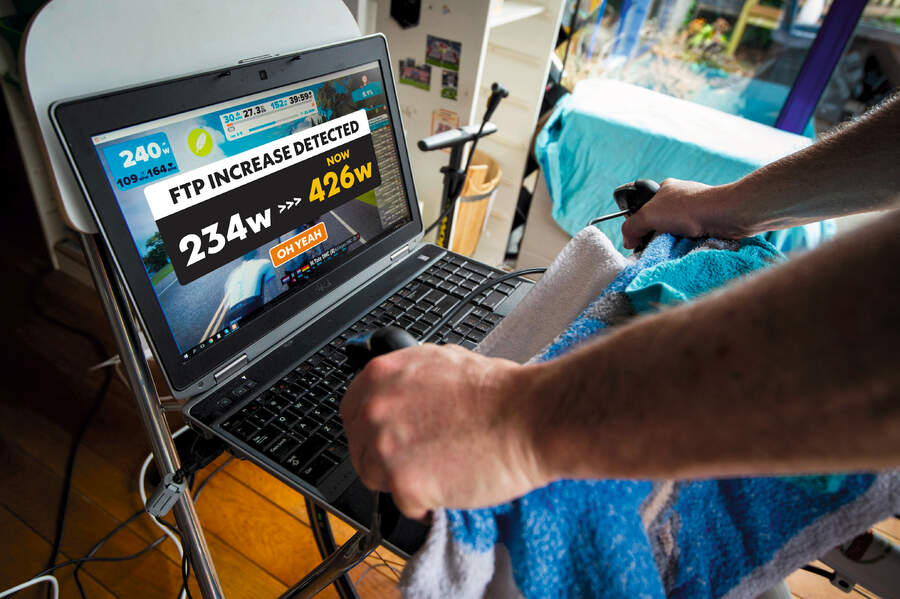
I was out for a ride with my friend Bernard recently, when he suddenly said, “What’s your FTP, Michael?”
Only four words, yet fully two reasons to be suspicious. He only uses my name when he’s plotting something, and he’d only conceivably ask about my FTP for exactly the same reason.
I’m assuming you know what FTP is – functional threshold power. Power as in ‘watts’, threshold as in ‘the limit of what you can sustain for an hour or so’, functional as in ‘we’re to at least some extent guessing here rather than actually measuring in a lab, but at least it’s cheap’.
“It’s about 5.3 watts-per-kilo,” I said. I gave him the power-to-weight ratio, because he likes to think I weigh 10 kg more than I really do, and this way if he wants to keep believing that he’s also going to have to give me the extra 53 watts on the absolute number. He can reckon me fat or he can reckon me weak, but he can’t reckon me both.
“Humph. As if FTP matters,” he replied.
“So what’s yours?” I asked.
“It’s 6.5 watts-per-kilo,” he said.
“No, Bernie, it’s not.”
“Prove it isn’t.”
I could have proved it there and then by just riding at my own FTP and showing him all the fresh air there would be between us after a minute or two, never mind an hour. But it wouldn’t help because he’d tell me it was winter and he never rides hard in winter. And also, from my perspective it would be a tiring way to make a point.
“I’ve done an FTP test,” continued Bernard.
I asked him what protocol he’d used, and if it was the standard 95% of his all-out 20 minute maximum power?
“Yes,” he said. “Except I just did a three-minute all out test, because I realised after I’d done three minutes that it was going to be easy enough to keep that going for another 17. And then I took 98% of that, because I’m more experienced than most so the extra 3% should be easy.”
“And your body weight?”
“I estimated my lean body weight and used that, obviously. Not that any of it matters, because it’s not real cycling.”
He is right, to some extent. As a concept FTP has its uses for tracking your own fitness, assuming you don’t mind a 20-minute flat-out effort on the turbo every few weeks. (And if you have any sense at all, you mind very much.) But for something that didn’t exist until 2010, it’s also become a weird bragging topic among cycling friends.
Partly that’s got to do with online racing, which emphasises pure power and power-to-weight to a degree that’s not all that healthy or realistic. And partly it’s got to do with the fact that you can, like Bernard, more or less make it up by incorporating a few rounding errors, like when he trims his weigh down from 81 kg to the nearest round number, which is clearly 65. It’s not like a time trial PB, or a result in an actual race, things which are a matter of record, and which are about actual cycling rather than homebrew lab testing and blatant exaggeration.
But I have to admit that I still like the fact that my FTP is bigger than most people’s. I agree on how pointless it is. I know that cycling is about skill and handling, that racing is about cunning and guile, that even time trialling is about measuring an effort and (recent evidence suggests) working out what’s in front of you without putting your head up to look. Judge me if you want.
I dropped Bernard up the last hill of the ride. Was it skill? Guile? Or that big old FTP? I don’t suppose we’ll ever know. Although if he really did weigh 65 kg, I might have more of a problem.







